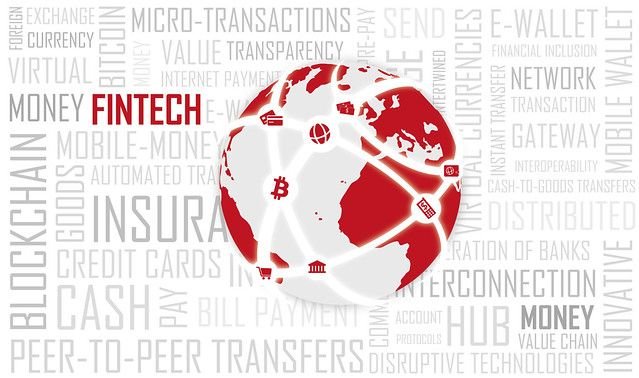FinTech which stands for Financial Technology is a rapidly growing but highly expansive field. FinTech’s areas of interest are many such as Net Banking, Cryptocurrency, Insurance, Trade, Application Design, and Online wallets. Since this interdisciplinary field is so widespread, it entails professionals from a wide variety of disciplines within its folds. A software designer and an accountant both can work in the field of financial technology, as this field caters to a large set of skills.
Some of the most sought after skills and tools in FinTech Course
● Cybersecurity expertise: One of the main threats that the FinTech industry faces is malware infections and hackers. If a financial technology system is infected and its data gets breached then, the corporation can face penalties; hence people who can secure the computer systems from virus invasion and prevent a breach of privacy are of great value in FinTech.
● Machine learning and Artificial Intelligence: FinTech works heavily with artificial intelligence. This field needs people who have apt statistical knowledge and instincts. One needs continuous analysis and study of data in FinTech. A candidate who knows how to use the machine learning to add, edit, remove, and study statistics will always be a useful addition in the FinTech industry. A person is needed to be proficient in Hive, SQL, and Pig. They are also expected to know how to work with toolkits like Weka, Python, NumPy, and MatLab.
● Soft Skills: The nature of FinTech industry is highly collaborative. A person is required to work closely with people who come from different backgrounds. This makes it necessary for a worker to have soft skills like teamwork, the ability to work in a group and be amicable. This industry also requires people to be highly open to ideas, edits, and suggestions so a person who is not receptive to feedback will not be a good fit for this industry. People with soft skills help in team-building and communicating ideas. They are useful in managing human resources and resolving conflicts that might arise in different groups due to the dense presence of workers from different disciplines.
What are the challenges and questions of the FinTech industry?
Like all industries in the world, FinTech also has its share of problems and challenges. FinTech is a relatively new industry; hence its challenges are still being explored. But over the years, government regulations and breach of data are the two main challenges faced by FinTech companies.These restrictions and lack of government support prevent these innovative companies from establishing themselves due to legal and bureaucratic hurdles. These problems are particularly harmful to start-ups than established companies.
Another major challenge that surrounds FinTech is that of hacking and breach of privacy. In the world of Big Data, information is gold, and hence hackers and cybercriminals are always on a lookout for profitable data. The breach of security by hackers or malware infection in FinTech brands does not just ruin the credibility of the company but it also leads to fines and penalties.
Some of the strictest penalties for FinTech corporations are made by the European Union (EU). All FinTech companies that are practicing in the European Union are mandated to adhere to the GDPR guidelines that deal with privacy and data protection. Any FinTech company that fails to protect the data of its users can face up to 20 million euros in fines or give up 4 per cent of their annual turnover in penalty. To prevent any intrusion by hackers, FinTech institutions end up splurging a copious sum of money into developing firewalls and other security systems such as anti-viruses. Not just money but time is also spent in ensuring that the information base is secure from all kinds of Trojans, malware, and snooping.
Conclusion
Contrary to popular belief, FinTech is not completely run by engineers or bankers only. Even people who are not particularly tech-savvy can work here in a highly collaborative space. In this cabalistic and digitalized world, by taking a Fintech Course you will be able to understand the immersion of financial technology which is in almost all kinds of fields and disciplines around the urban world.



 From healthcare to finance, companies in nearly every industry are looking to apply blockchain and get ahead of their peers.
From healthcare to finance, companies in nearly every industry are looking to apply blockchain and get ahead of their peers. There’s a bright scope for blockchain developers in India. If you’re interested in becoming a blockchain developer and want to learn what is blockchain, check out this
There’s a bright scope for blockchain developers in India. If you’re interested in becoming a blockchain developer and want to learn what is blockchain, check out this 

 For this, students can join vocational programs in Finance and Analytics from reputed institutions. Imarticus is one such renowned organization that is offering courses in these subjects to train students and make them job-ready for the business world. By learning these courses students get:
For this, students can join vocational programs in Finance and Analytics from reputed institutions. Imarticus is one such renowned organization that is offering courses in these subjects to train students and make them job-ready for the business world. By learning these courses students get: Fee Waiver on PG Classroom Programs – Up to 25% off
Fee Waiver on PG Classroom Programs – Up to 25% off
 It has widely been seen that people have very positively accepted fintech as their new normal. Unlike the usual times where people used to visit banks for even their balance inquiries, people nowadays have gained trust in the applications and portals under fintech.
It has widely been seen that people have very positively accepted fintech as their new normal. Unlike the usual times where people used to visit banks for even their balance inquiries, people nowadays have gained trust in the applications and portals under fintech. To illustrate, earlier many amazon orders were booked with cash on delivery but people want to have their limited cash reserves with them and hence are paying online.
To illustrate, earlier many amazon orders were booked with cash on delivery but people want to have their limited cash reserves with them and hence are paying online.



